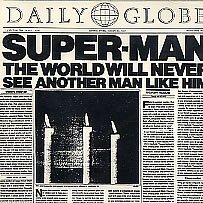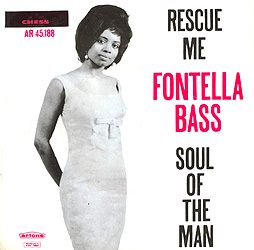Artist: Lou Reed
Song: "Walk On The Wild Side"
Album:
Transformer
Year: 1972
CLICK HERE TO LISTEN (will open in new tab)
Leaving a successful group, for whatever reason, almost always ends poorly for that band member, as it is usually nothing short of impossible to get a "fair shake" as a solo artist. Music fans are usually quite adamant about the solo musician "rehashing" the sound of their band, and it can make things very frustrating for the performer in question. Then again, one can make the case that if your name happens to be Lou Reed, you can do whatever you want and people will happily support it. As one of the key members of
Velvet Underground, Reed played an immeasurable role in shaping music, and his overall career is something that truly defies description. The number of bands and artists that he has influenced is incalculable, and one can hear traces of his sound in everything from hip-hop to jazz to punk. After Velvet Underground changed labels, they were being pushed to write about "lighter subjects" and this led to Reed's departure from the band, an truth be told, he spent much of the next year working as a typist for his fathers' accounting firm. Thankfully, in early 1972, Reed was offered a recording contract and soon released his self-titled solo debut. Though the album did not do well commercially, the album led to a second recording session, this time with Reed bringing nearly all new material, as well as having a superstar support team. The album, 1972's
Transformer, remains one of the greatest records ever recorded, and the album contains the song which is perhaps Reed's most famous solo recording, the iconic, "Walk On The Wild Side."
In some ways, it is almost impossible to decide "where" to begin when discussing just what it is that makes "Walk On The Wild Side" such an amazing musical accomplishment. Clearly, the biggest difference between his first record and
Transformer is that for the latter, Reed had the legendary Mick Ronson as well as a man named
David Bowie handling the production duties. Both of these performers had been heavily influenced by Reed's work in Velvet Underground, and the album title of
Transformer is a not-so-subtle not to the trans-gender world which both Reed and Bowie used as subject matter during this era. Yet "Walk On The Wild Side" brings the listener one of the most simple, yet absolutely amazing and unforgettable musical arrangements in history, a feat which only one with a mind like Lou Reed could compose. The song centers around the iconic, interlocking dual bassline, both of which were played by Herbie Flowers. The song bobs slowly up and down, sticking to a plagal cadence, much like a majority of Reed's previous compositions. The light, flowing acoustic guitar that runs throughout the song is, in fact, performed by Ronson, and he is also responsible for the string arrangements found on the track. The similarly airy, jazzy drums are played by John Hasley, and the iconic baritone sax pieces are courtesy of the man who taught David Bowie to play the instrument, Ronnie Ross. Though such a combination of instruments would normally result in a loud, heavy sound, on "Walk On The Wild Side," they are all kept in a very restrained, almost muted role, and it gives the song a folk-like feel, as well as perfectly capturing the mood of a late night walk down a big city street.
As the man who truly defined "cool" for his generation, Lou Reed's vocals on "Walk On The Wild Side" are perhaps his "coolest" performance of his career. With his signature spoken style, one cannot deny that Reed is performing a hip-hop style rhyme throughout the song, and his laid-back demeanor throughout the song perfectly compliments the feel of the music over which he works. Yet as fantastic as Reed's performance is on "Walk On The Wild Side," one would be remiss to overlook the fact that perhaps the most iconic vocal piece of the song is the unmistakable backing "doo doo doo's" whcih are performed by the girl group, ThunderThighs. It is this aspect of the song that has found its way into countless films and other songs, and in some ways help to "hide" just how racy the lyrics were. Though many simply pass off the lyrics as "everyman" type words, the fact of the matter is, each of the songs' verses speak of a very specific, real individual. Every verse refers to one of the "superstars" from Andy Warhol's "crew," and the fact that a song that was basically about trans-gendered individuals yet became a hit is truly a feat. In order, the song speaks of Holly Woodlawn, Candy Darling, Joe Dallesandro, Joe Campbell (nicknamed Sugar Plum Fairy), and of course, the legendary Jackie Curtis. All five of these people appeared in Warhol's films at the time, and their sexual lifestyles, from homosexuality to bisexuality to trans-gendered living can be heard clearly in the words once one is aware of the true characters behind the song. Even without this knowledge, the fact that a song that so directly speaks of prostitution, drugs, and so many other "taboo" subjects became a top ten hit is yet another reason why there is no other artist worthy of being mentioned in the same breath as Lou Reed.
Whether it was punk rock, hip-hop, or "normal" rock and roll, it is almost impossible to properly capture the massive amount of influence that Lou Reed has had on the musical landscape of the past forty years. Making massive leaps in both his approach to music as well as "what" could be considered music, one can easily make the case that without his contributions, music simply would not exist in its current state. After refusing to compromise his musical integrity, Reed walked away from Velvet Underground and after securing a new record deal, began his work as a solo artist; a move that would yield some of the most impressive music of his career. His first release was fantastic, yet a commercial flop, perhaps due to it being largely comprised of "leftover" songs from his previous band. Bringing in Mick Ronson and David Bowie to produce, his 1972 record,
Transformer, remains today one of the most amazing musical accomplishments in history. Packed with some of the most risqué lyrics of the era, it is perhaps Reed's smooth, mellow voice which helps them to have less of an "edge" and perhaps make the listener "miss" the actual meaning. Yet the words are as clear as can be, the references to sexual deviancy and taboo lifestyles completely unguarded. However, "Walk On The Wild Side" was still a massive hit and it has been covered across genres and parts of the song referenced and used in many songs over the decades. From the unmistakable, interlocked double bassline to the amazingly "cool" vocal performance from Lou Reed, there is simply no other song that can compare to the sound of the unrivaled, iconic, "Walk On The Wild Side."













